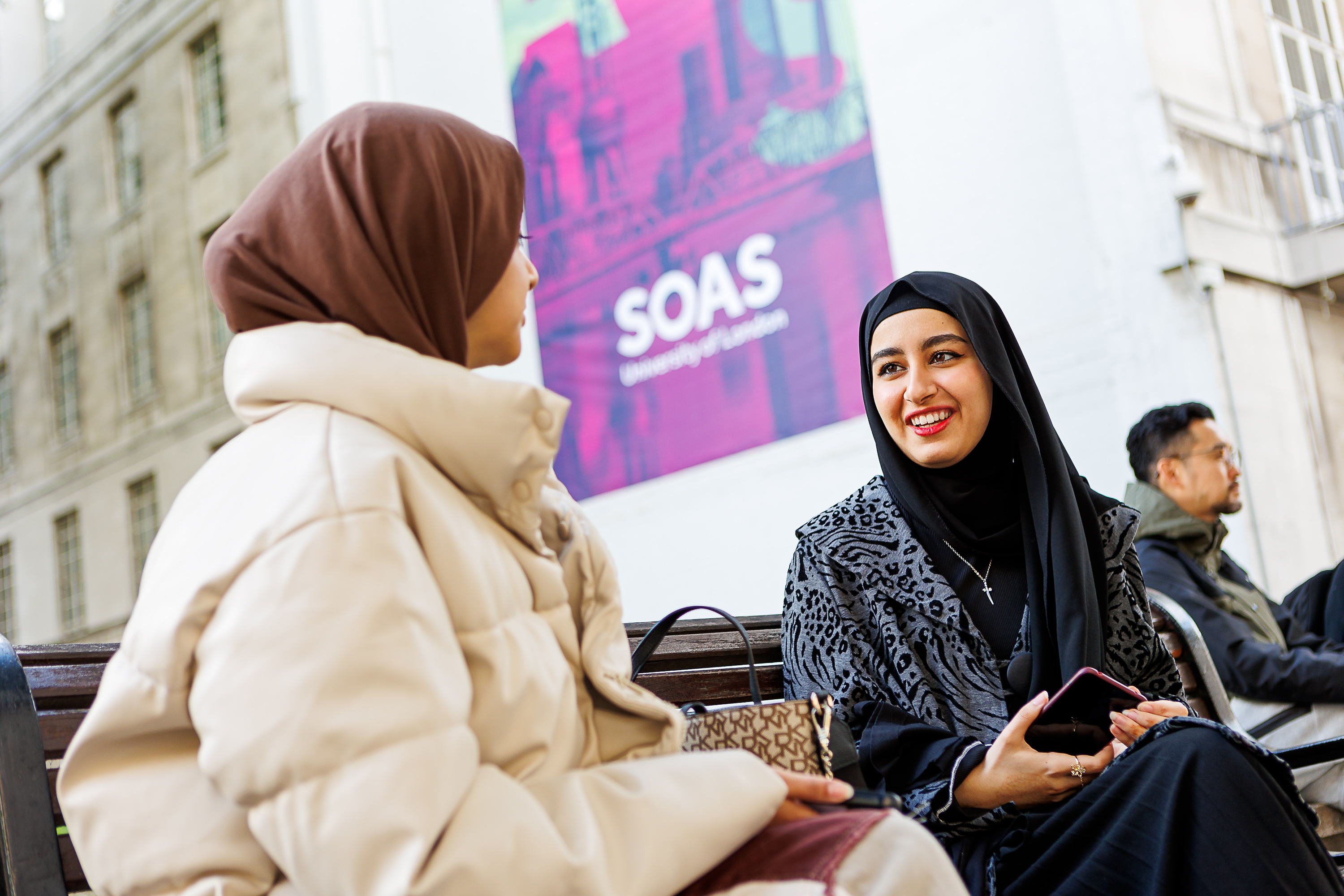From socio-economic inequalities and developing global health crises to planetary degradation and species extinction, the world is in desperate need of solutions. SOAS University of London has created a master’s programme to give you the knowledge, skills and tools to do just that.
The MA Anthropology of Global Futures and Sustainability explores the fundamental questions around what it is to be human in today’s world. In this degree, you will explore, communicate and address some of our most pressing challenges. You will harness the theoretical and methodological tools to comprehend the causes and solutions to climate change, how people around the world apprehend and deal with the pressing social and environmental challenges they face, and the range of approaches and practices that can help to deliver sustainable futures.
It is through understanding and grappling with the challenges and opportunities to a sustainable future that we can begin to implement change. It’s this approach that draws students like Rivaldo Herman to this programme. He found that looking at sustainability and the future through an anthropological lens is integral as societies around the world have different cultures, points of view and experiences. These differences are why solutions to global problems cannot be universal. “Throughout this programme, the concepts of ‘sustainability’ and the ‘future’ are critically examined by questioning and seeking solutions regarding the relationship between sustainable development, current green initiatives, and their intersection with environmental injustice and exclusion, which are worsening on the other side,” he says.
Building your confidence as an engaged global citizen, you will question existing assumptions and think productively about the future of sustainability in our world. “What is unique about the MA Anthropology of Global Futures and Sustainability is the culturally engaged outlook our students take to critically understand the roots of our contemporary crises,” says Dr. Saad Quasem, programme convenor. “From this perspective, our students can creatively and productively imagine better futures, and are given the theoretical and practical tools with which to enact real sustainability”, adds his colleague Dr Alice Rudge.

This MA can be completed over one year full-time or two or three years part-time. Source: SOAS University of London
The Department of Anthropology and Sociology is committed to economic, social justice, and environmental equality which is reflected in the MA Global Futures’ critical engagement with the Sustainable Development Goals established by the United Nations. . The MA consists of five core elements, which combine an academic understanding of sustainability andclimate change with practical skills in ethnographic research methods, how to change things (such as how to lobby governments for change, how to produce media for a range of audiences or how to engage with and advocate for communities), and writing a dissertation, which offers students an opportunity to research, produce and present an original project around the programme’s themes.
Completed over one year full-time or two or three years part-time, this degree features a mix of seminars, lectures, workshops and practical sessions. Your assessments willtypically consist of some mix range of essays, reflective pieces, blogs and op-eds, practical exercises, creative projects (artwork, poetry), presentations and reports.
There are five compulsory modules: The Anthropology of Sustainability: Global Challenges and Alternative Futures, Anthropology of Climate Change, How to Change Things, Contemporary Anthropological Theory, and Ethnographic Research Methods. To complement these modules, you can choose courses from other courses within the Anthropology department, such as Migration, Borders and Space: Decolonial Approaches and Food, Place and Mobility, or from courses in other departments, including a large array of language modules. The MA also offers the unique opportunity to gain practical work experience in an organisation, institution or enterprise closely related to issues of climate change and/or sustainability, allowing for guided reflection on the relationship between theory and practice. The multidisciplinary approach, as well as the option to master another language, helps tailor the programme to your skills and interests.

SOAS is ranked fifth in the UK and 12th globally in the QS World University Rankings 2023 for Anthropology. Source: SOAS University of London
For Francesca Nicol, the programme gave her insights into the work she was already doing in environmental non-profits. The academic lens allows her to look at the broader context of her work. “I wanted to explore how anthropological study might inform more progressive approaches to designing and implementing projects in the sector, and was particularly drawn to this programme because of its international perspective that highlights decoloniality, and a wider range of scholars and activists,” she says.
Students can choose a challenge that they are most passionate about. For example, Bejal Desai explored the complex nature of ecological care and its potential to be co-opted or corrupted. Her focus is on contexts like greenwashing and colonial attitudes towards land. “The concept of ‘care’ for the environment is all too readily co-opted and corrupted by neoliberal strategies of paying lip service in order to maintain the status quo,” she says.
Completing a programme like this at SOAS can give you new perspectives and open the door to new career prospects. Employers recognise and respect the SOAS brand — the school itself is ranked fifth in the UK and 12th globally in the QS World University Rankings 2023 for Anthropology. It is also ranked sixth in the UK for employability.
A SOAS graduate possesses unmatched cultural awareness and expertise in multiple regions. It’s this, plus their well-honed skills and knowledge, that have enabled recent graduates to land roles at the British Council, the Carbon Trust, Deloitte, the New York Times, UNICEF, World Bank Group and many more prestigious organisations.
Apply to SOAS University of London’s MA Anthropology of Global Futures and Sustainability.
Follow SOAS University of London on Facebook, X, LinkedIn, Instagram and YouTube.










